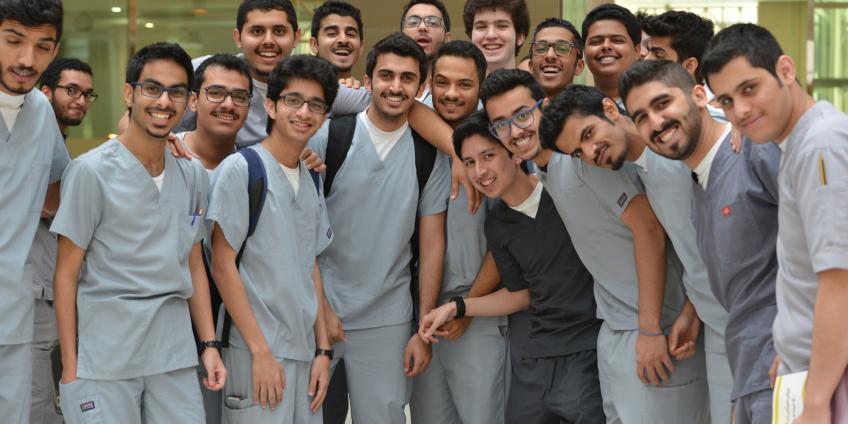
Introduction
The College of Medicine at the Imam Abdulrahman bin Faisal University was established by Royal Decree No. H/67 dated on 28-7-1375 AH/1975 CE. The first cohort of undergraduate medical students was admitted in that same year and graduated in 1981. The College of Medicine pioneered postgraduate medical education in the Kingdom. It's postgraduate programs were the first to be recognized by The Arab Board of Specializations, he Royal College of Surgeons in Ireland and the Saudi Commission for Health Specialties.
Since its inception, the College of Medicine has been organizing Continuing Professional Development Programs designed for all health professionals in the Eastern Province and the Kingdom at large. The College also has participated in health education for the general public through local, national and regional information media.
Vision
To be a premier medical college in medical education, healthcare and ethical research.
Mission
The College of Medicine is dedicated to graduating physicians who are committed to Islamic and professional ethical practice. This will be achieved through continuous development of the curriculum. The college is also committed to provide excellent healthcare and promote community health. The college will encourage the conduction of innovative basic, applied, clinical and community based research.
Values
Excellence, Innovation, Honesty, Transparency, Accountability, Collaboration and Teamwork.
Goals
- Educate, train, and mentor future medical practitioners to effectively meet evolving healthcare needs
- Foster excellence in research, scholarship, and discovery
- Promote and support community service and establish effective national and international partnerships
- Recruit, retain, and develop high caliber faculty, staff, and researchers
- Provide a motivating educational and work environment
- Enhance the efficiency of quality management and administrative pathways
- Diversify the college's sources of funding and foster sustainability
- Expand the utilization of communication and information technology

